20 Examples of sentences of Present Perfect Tense

Present Perfect Tense grammar guide English ESL powerpoints
Auxiliary Verbs. In forming the present perfect tense, you need to use the auxiliary verb "have" or "has" with the past participle of the main verb. The choice between "have" and "has" depends on the subject of the sentence. Use "have" with plural subjects, "I," and "you," while use "has" with singular subjects, "he," "she," and "it."
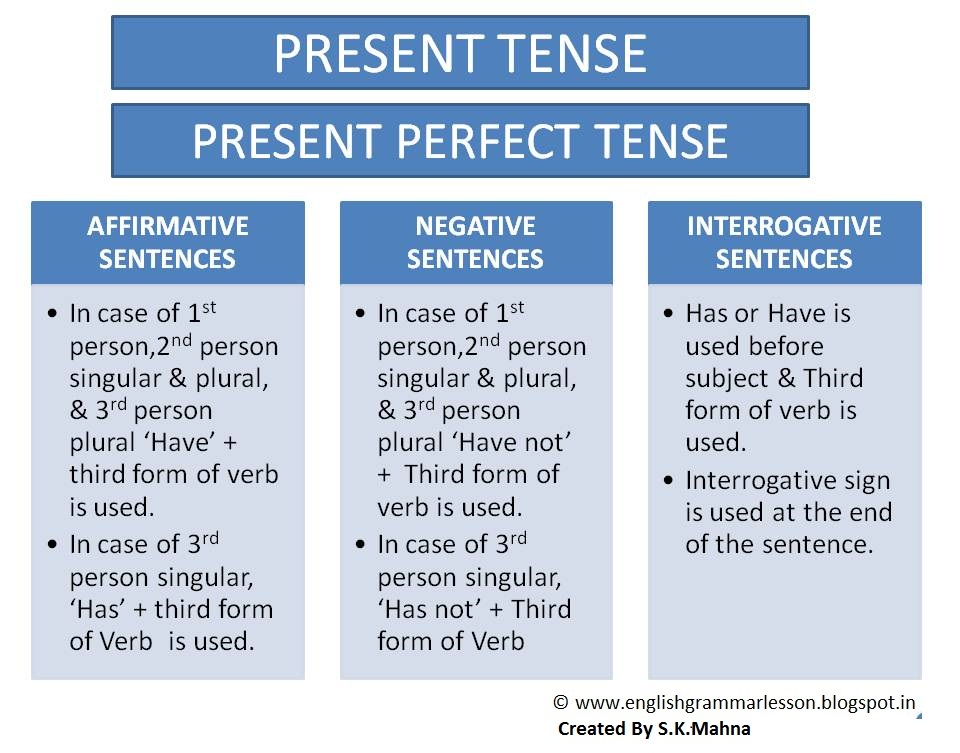
English Learning Made Easy & Simple PRESENT PERFECT TENSE
The present perfect tense is one of the common verb tenses in English, used to show an action that happened in the past that is directly related to the present, such as actions that are still continuing or that indicate a change over time. We cover a complete list of when to use the present perfect tense below.

10 Sentences in Present Perfect Tense in English Present Perfect Tense is an English tense
English Grammar Verbs Present tense Present perfect Present perfect Level: beginner The present perfect is formed from the present tense of the verb have and the past participle of a verb. We use the present perfect: for something that started in the past and continues in the present: They've been married for nearly fifty years.

8 sentences in present perfect continuous tense lessons for english Artofit
This verb tense is called the present perfect, but it is still talking about a past action. The auxiliary verb to have will be used in the present tense. The present perfect tense is have/has + the past participle form of a verb. For regular verbs (verbs whose past tense ends with _ed) the past tense and the past participle are the same. present.
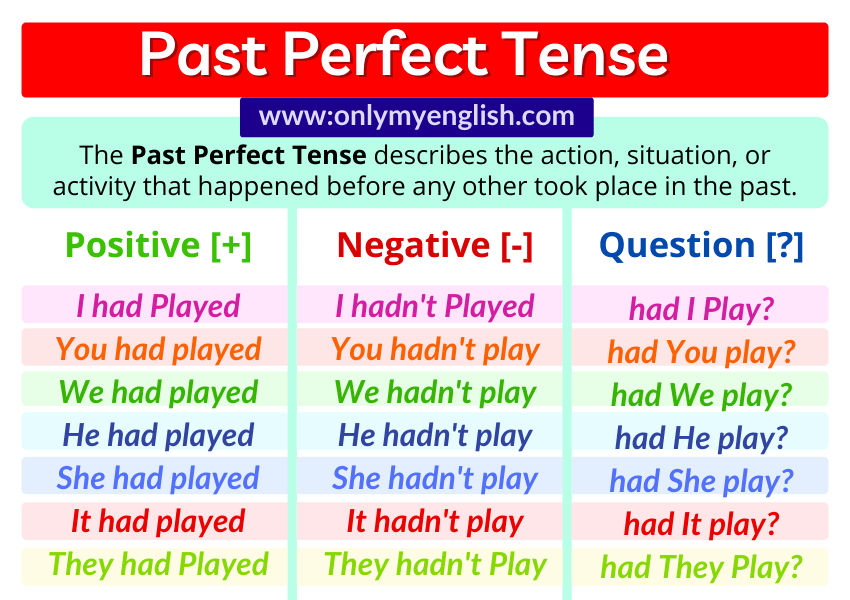
Simple Present Tense Formula Chart Structure Of Simple Present Tense English Study Page Hace
The present perfect is a verb tense which is used to show that an action has taken place once or many times before now. The present perfect is most frequently used to talk about experiences or changes that have taken place, but there are other less common uses as well. Read on for detailed descriptions, examples, and present perfect exercises.

25 Examples of Simple Present Tense Sentences Simple present tense, English vocabulary words
Sentences with Present Perfect Tense. The present perfect tense is used to talk about actions that started in the past and continue to the present, or actions that happened at an unspecified time in the past and have a result in the present. It is formed using the auxiliary verb "has" or "have" followed by the past participle of the verb.
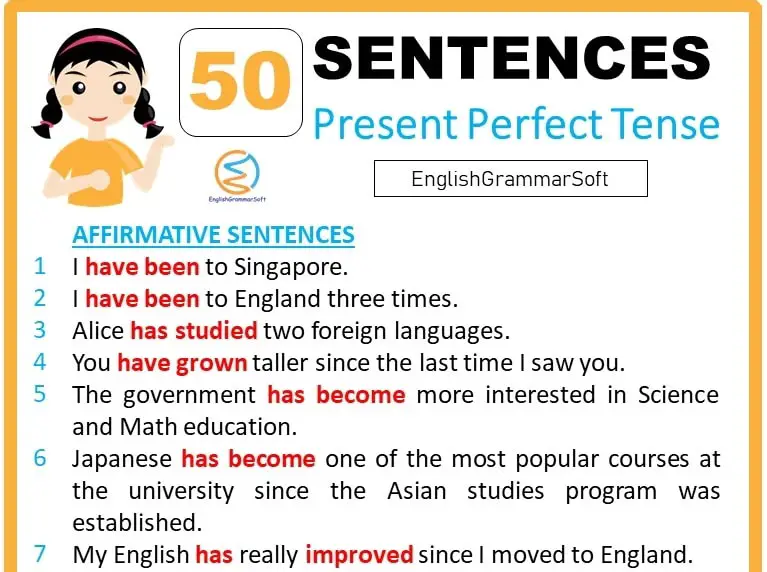
Present Perfect Tense Sentences (Affirmative, Negative & Interrogative) 50 Examples
Summary. Define present perfect: the definition of the present perfect tense is a tense denoting an action that occurred at an unspecified time before now. In summary, the present perfect tense is: formed by: Subject + has/have + past participle of verb. used to express actions of duration that occurred in the past (before now) of unspecified time.

Present Tense Formula In Hindi Tense In Hindi Pdf Notes Free Download Ssc Result तो दोस्तों
The present perfect tense refers to an action or state that either occurred at an indefinite time in the past or began in the past and continued to the present time. I have ordered two large pizzas
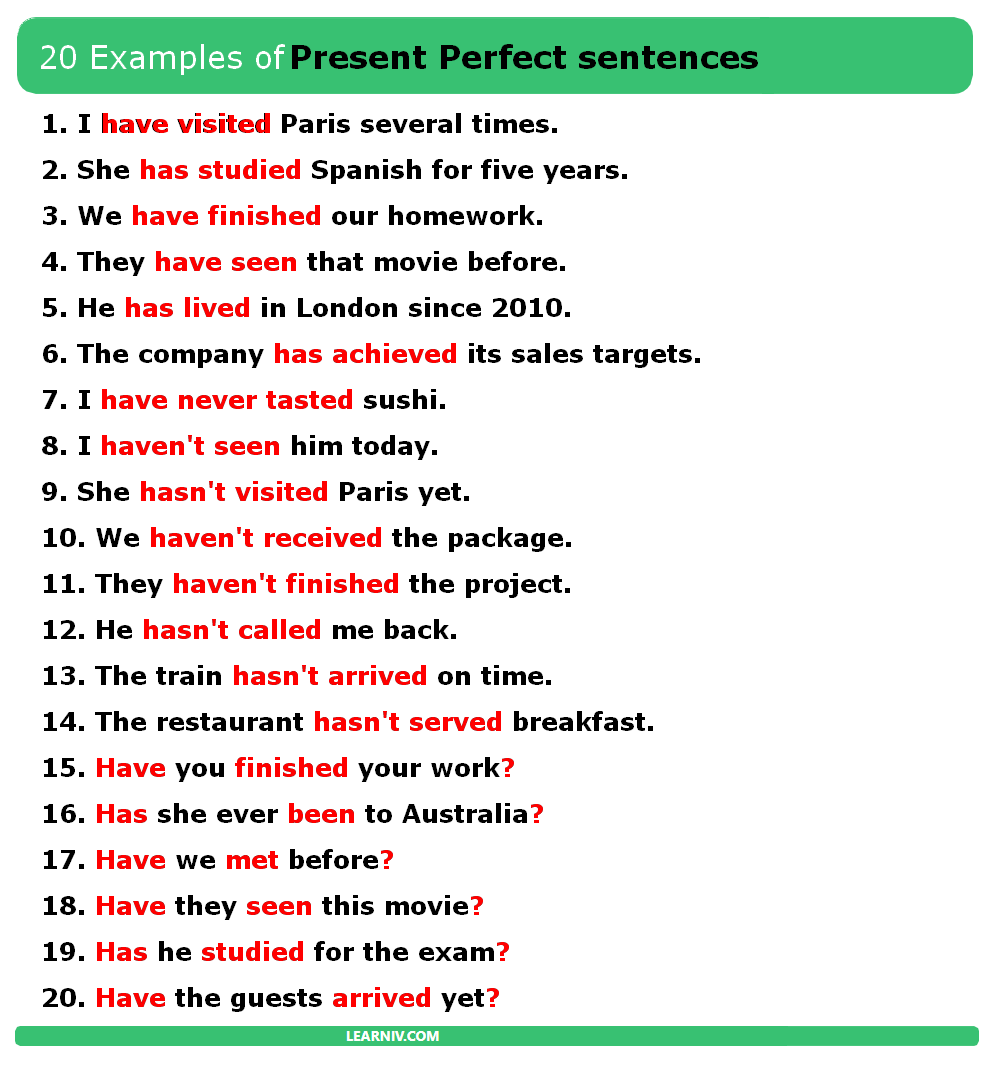
20 Examples of sentences of Present Perfect Tense
The present perfect tense is a verb form used to refer to a past action or situation that has a present consequence. It's typically used to indicate experience up to the present, recent actions, or a change that occurred over a period of time.

Tense in English Grammar in Hindi Types, Rules, Charts, PDF Spoken English Guru (2022)
The perfect present tense can describe habitual or repeated actions and one-time events. How Do You Use the Present Perfect Tense? Good question! The present perfect tense formula uses the present tense of the verb "to have" (I have, you have, he/she has) and the past participle of the main verb (gone, seen, eaten).

Present Perfect Tense grammar guide English ESL powerpoints
What is the present perfect tense and when do we use it? The present perfect is formed by subject + have/has + past participle of the main verb, for example: I have bought a car recently. I = subject, have = auxiliary verb, bought = past participle of the main verb "buy" She has visited the museum several times.

SOLUTION 9 sentences of present perfect tense Studypool
100 Sentences in Present Perfect Tense! When do we use the present perfect tense? This can be a difficult question for English learners to answer. The present perfect is used to talk about things that have happened in the past, but which still affect the present. It's a tricky tense, but with a little practice, you'll be able to use it like a pro!
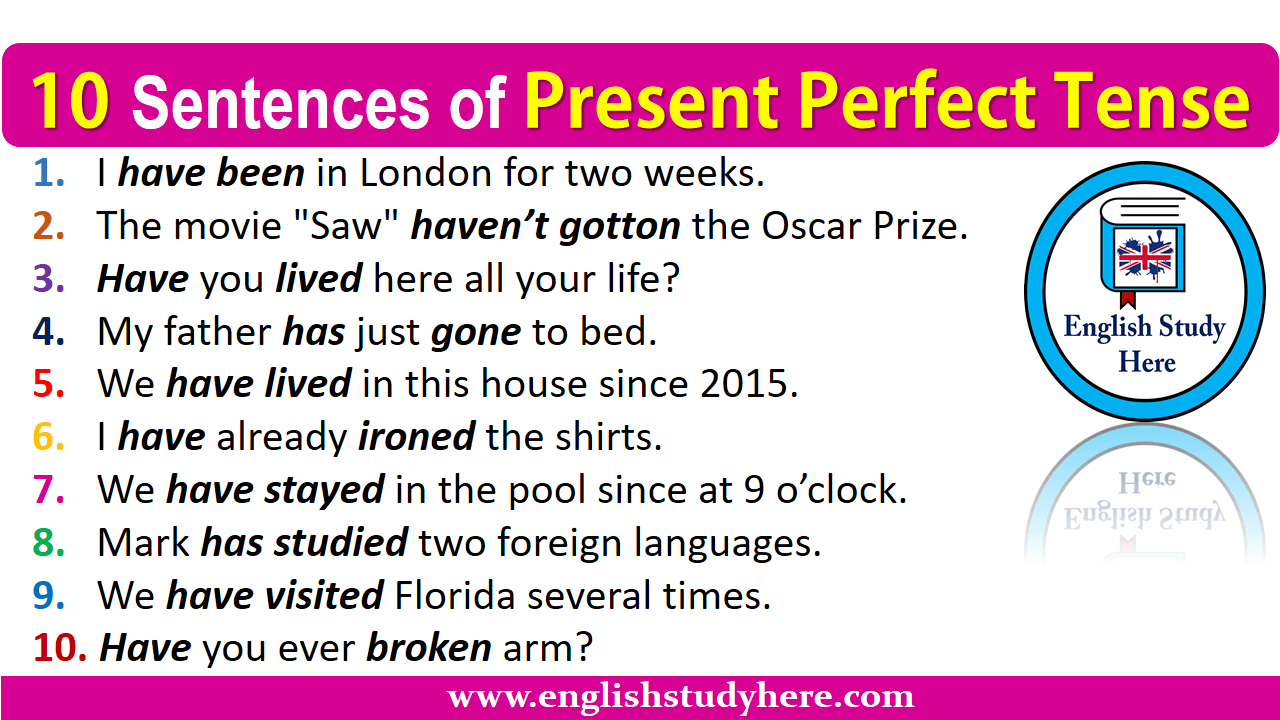
10 Sentences of Present Perfect Tense English Study Here
More Examples of the Present Perfect Tense. Here are some more examples of the present perfect tense: The board has decided to uphold the appeal. (This sentence carries the connotation that the board continues to uphold the appeal.) I have taken the wrong path. (Connotation: I am still on the wrong path.)
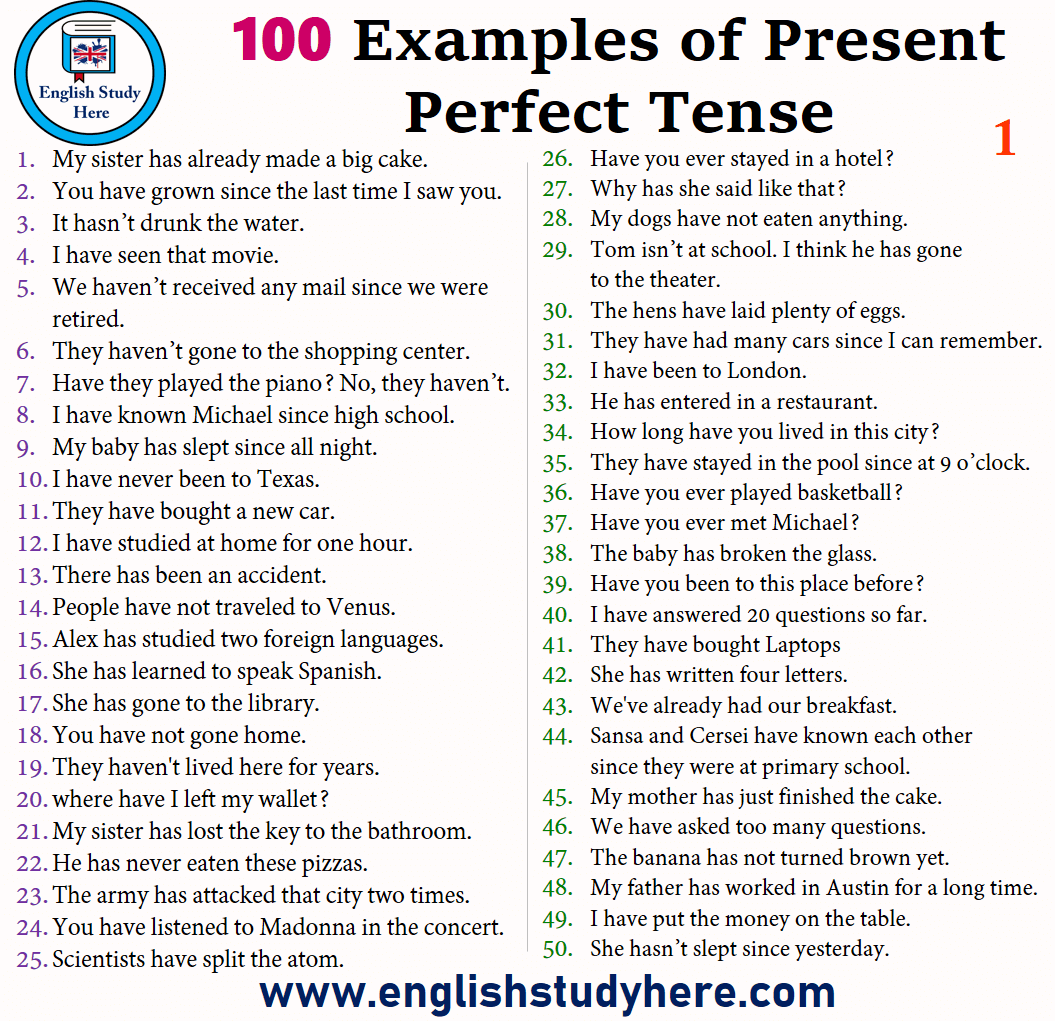
The Present Perfect Tense Examples BEST GAMES WALKTHROUGH
Tenses › Present perfect English present perfect What is present perfect in English grammar? Present perfect describes past action that has a relationship with the present. Learn English present perfect usage and find out present perfect types, examples and common mistakes. Try private lessons 32,000+ Experienced tutors 300,000+
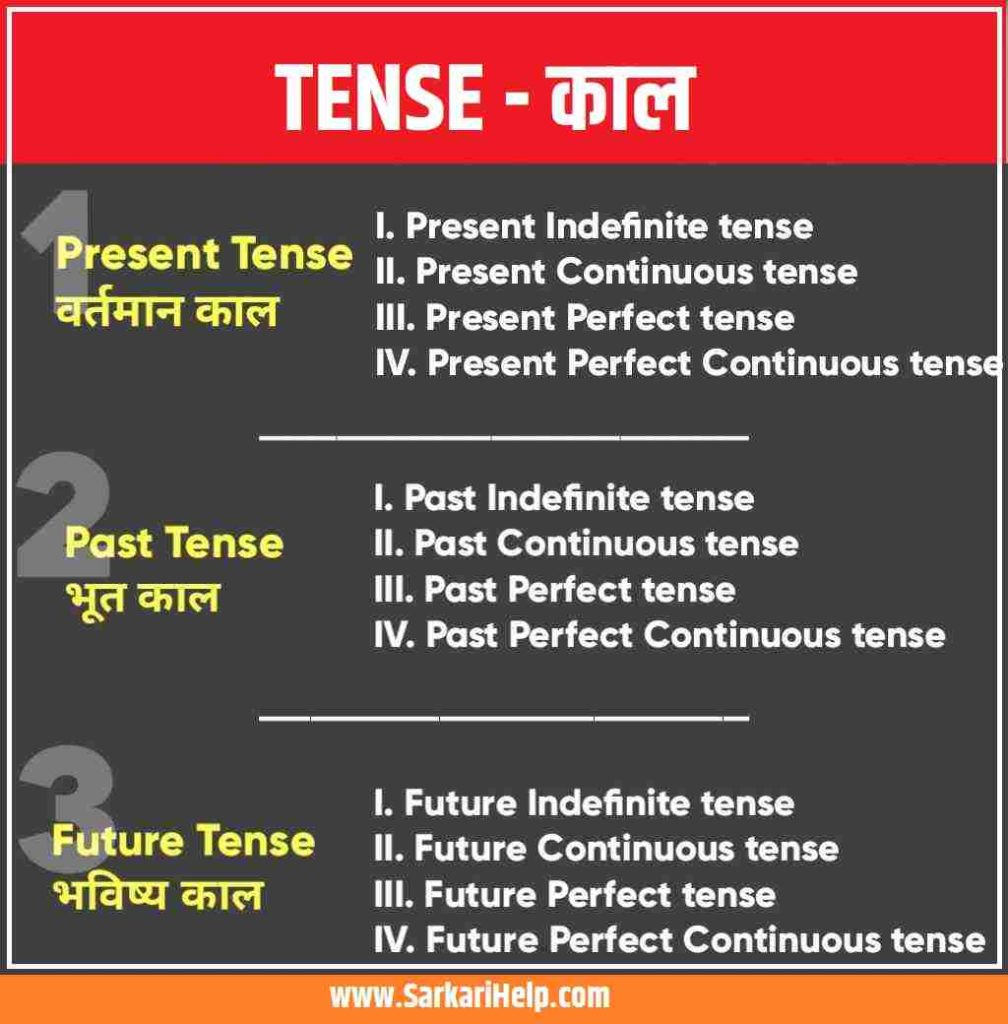
Tense in Hindi Present, Past, Future Tenses in Hindi With Example
Tenses Present Perfect Tense The present perfect tense is a tense used in present to indicate the action that has taken place at some specific time. It uses auxiliary verb and past participle for the main verb i.e. verb + ed. Some examples of present perfect tense are - I have watched this movie before, He has completed his homework.

10 Examples of Present Perfect Tense Sentences 1 Perfect tense, Present perfect, Essay writing
The Merriam-Webster Dictionary defines the present perfect tense as one "relating to, or constituting a verb tense that is traditionally formed in English with have and a past participle and that expresses an action or state begun in the past and completed at the time of speaking (as in "I have finished") or continuing in the present (as in "We.